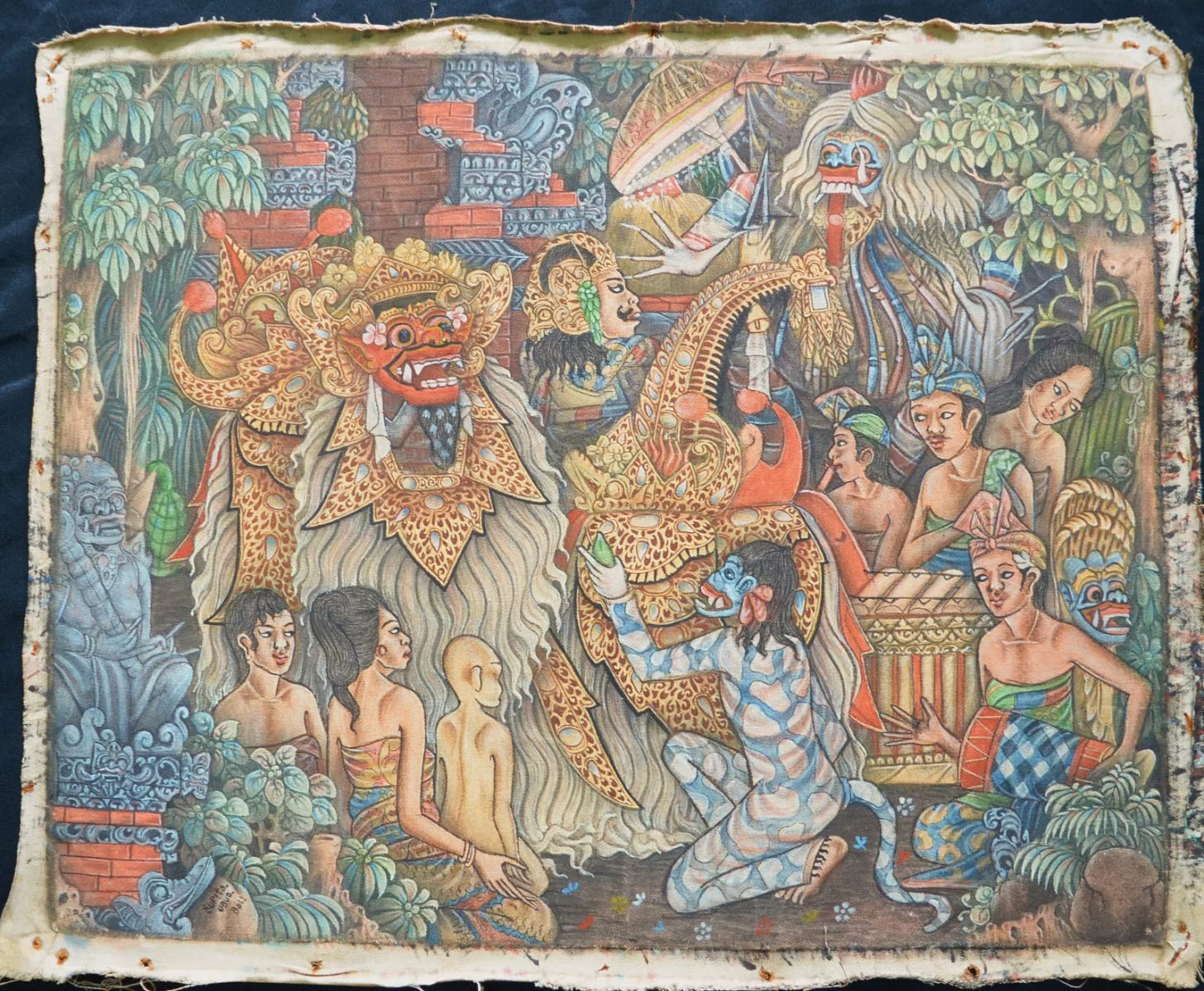Meeting Bali's Shamans
(Part 1) On the survival of animism, how to become a shaman, the taboo of menstruation and being holy or, simply, human
Firstly, welcome to all new paid subscribers! I’m delighted that so many of you made use of the discount. On the header of the publication you can find all past Series for the paid community, along with the Full Archive tab with the 70+ articles, each with an audio recording.
Thanks again for being here! Please always feel welcome to share your own thoughts and reflections on the comments section - though it can take me up to a week or so as I move slow with internet communications, I always get back to messages and love hearing from you.
I realise I’ve spent most of my adult life in search of elders: the shaman Don Cesar from Peru who I lived and apprenticed with for six months; the widowed poet Don Luis from Bolivia who I met at a cafe in La Paz when I was working with a law firm to preserve indigenous people’s land rights and who would gift me much-needed moments of serenity by reciting the poems he had written for his beloved wife; Manolo, my family’s neighbour in Southern Spain who still uses the old Arabic irrigation systems to water his land and who would chat my ear off under his orange trees; the duchess of a palace in Andalusia who is the custodian of one of the oldest historical archives in Europe, and my dear friend Ken, an elderly artist who I met in a cafe when I used to live in Devon and whose company I would keep every Monday morning for a coffee and pastry during study breaks throughout the course of my master’s degree. These, among many others, I consider to be elders in my life.
Goethe wrote, ‘Tell a wise person, or else keep silent’.
I suppose anyone inclined towards wisdom seeking and self-knowledge does it. We search for teachers. Someone who can fill in a little more of the map.
The danger here is thinking that anyone holds the full picture. This is fundamentalism. It’s much easier to jump on that horse than to carve out our own way.
But if the elders I have known in my life have taught me anything, it is to think for myself. To question even them.
Elders are often heretical. They are visionaries and are typically well ahead of their times. They teach us both in life and in death.
An elder is a title we can bestow on someone who we recognise as a custodian of knowledge. They are individuals in society who hold a torch. This is very different to authority figures like politicians, government officials, the police or the clergy. Elders hold a different kind of office entirely. They don’t impose. They lead by example. They are like living libraries. Custodians of knowledge that they have often, though not always, received through a lineage. And they contribute to the betterment of society through knowledge.
Keeping record of my meetings with such individuals and sharing them on here is one of the ways I attempt to recover ancient knowledge and make it more available, or accessible, to the modern psyche that hungers for it.
Whilst I was in Bali, I interviewed three shamans. Three elders. One woman and two men. One of them became a teacher and initiated me into the lineage. What follows is some of the conversations we had, from how one becomes a shaman, the difference between male and female shamans, and the three pillars of right-conduct that ensure happiness.
The interviews form part of my series on Encounters with Elders. You can read or listen to past conversations with a Spanish Catholic priest and a Serbian archaeologist in the archive.
Here is part 1.
NB: I use the term shaman here to mean a person of power who holds a religious office within their community, unrelated to an institution, and is seen as a caretaker of sacred knowledge, master of the healing arts and braided to a benevolent spirit world with which they work in partnership.
Please also note the three shamans I interviewed speak in broken English. I have made minor grammatical edits and changes in form so that their responses make sense.
You may notice there is more dialog from Sumantra. This is because I spent many days studying with him (he is the one who ended up becoming a teacher) and I’m including some of what I learned as part of the Series.
Keep reading with a 7-day free trial
Subscribe to Under a Fig Tree to keep reading this post and get 7 days of free access to the full post archives.





